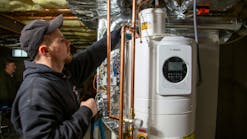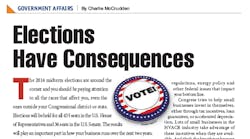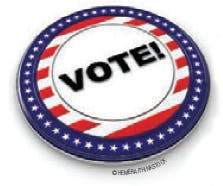The 2014 midterm elections are around the corner and you should be paying attention to all the races that affect you, even the ones outside your Congressional district or state. Elections will be held for all 435 seats in the U.S. House of Representatives and 36 seats in the U.S. Senate. The results will play an important part in how your business runs over the next two years.
The 2014 midterms will determine the makeup of the 114th Congress that will be in session from January 2015 until December 2016. Because the term will overlap with the next presidential election, including all the caucuses and primaries beginning in the first quarter of 2016, no one expects a lot from the next Congress. But that’s no excuse to disengage from the process. You can bet the federal agencies will be active in the last two years of the Obama Administration.
No matter which party controls the Senate after the election (more on that in a bit), it’s not expected to be a large enough majority to overcome the Senate rules structure that give a lot of power to the minority party, making it difficult for the majority party to affect its agenda.
Meanwhile no one expects the Republicans to lose their hold on the House of Representatives. They currently have a 34 seat majority, meaning they can lose as many as 16 seats and still be in charge. Speaker of the House John Boehner may have difficulty controlling his conference, but barring any losses in seats he will be retained as the Speaker.
Senate Democrats (and those Independents that caucus with them) outnumber Senate Republicans 55-45. Going into the elections, Republicans believe they can win the six seats necessary to take control of the Senate.
Across the country there are 36 states holding Senate elections. Democrats are defending 21 seats, with four open seats. Republicans are defending only 15 seats with only three open seats. Open seats are created when a seated Senator retires. Open seats offer a better chance to change the current Democrat to Republican ratio since there’s no incumbent to unseat.
In 10 states polls show the races as “competitive,” meaning within the margin of error: Alaska, Arkansas, Colorado, Georgia, Iowa, Kentucky, Louisiana, Michigan, North Carolina and West Virginia. In eight of these states the incumbent is a Democrat. There are other states, like New Hampshire, Minnesota and Montana, where the results could be a surprise.
As you go to the polls on Election Day, you’ll want to think about what you want from Congress and the federal government over the next two years. Research the candidates running in your district and their positions on taxes, health care reform, government regulations, energy policy and other federal issues that impact your bottom line.
Congress tries to help small businesses invest in themselves, either through tax incentives, loan guarantees, or accelerated depreciation. Lots of small businesses in the HVACR industry take advantage of these incentives when they are available. And that’s the key phrase because sometimes these incentives are passed late in the year and applied retroactively. No one is going to buy a new truck today thinking that Congress may pass a law that retroactively qualifies it for an expanded expensing allowance.
Consider all the candidates you have to choose from. You may want to think about how seriously they take their oversight role with the federal agencies. Everyone expects the pace of new rules to increase during the Obama lame duck years. It happens at the tail end of every Administration, and President Obama has made no secret of his plans to move his agenda using the regulatory agencies or Executive Orders. In the coming years, Congress is the only stop gap during this rush to increase regulations.
Looming in the not too distant future is the next presidential election in 2016. After the dust settles in November the winners and losers will immediately look toward this next big test and it’s sure to factor in to the Congressional agenda over the next two years.
Charlie McCrudden is vice president of government affairs for the Air Conditioning Contractors of America. Contact him at [email protected].










